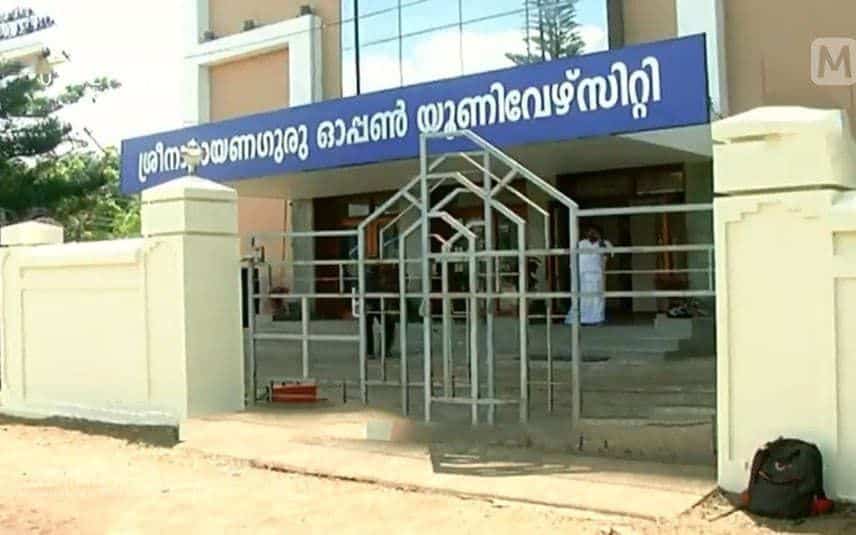In the 15 states of India, State Open Universities and other universities offer several distance courses with the approval of the University Grant Commission’s (U.G.C) Distance Education Bureau (DEB). These states’ open universities have not factored in the limitations of other universities’ distance and private modes. However, the introduction of the open university in Kerala has hampered the modes of other universities. The Sree Narayana Guru Open University (SGOU), Kerala’s open university, faces a number of challenges, including high tuition fees, the loss of many parallel college teachers’ jobs, concerns about the value of the open university certificate, and the loss of time for distance education students.
Recently, in Kerala, the majority of students who enrolled in distance education mode have opted Calicut University because of its cheap rate courses. 44,891 students were enrolled in 2017-18; 49,826 in 2018-19; and 53,531 in 2019-20. In the 2020–21 academic year, Calicut University lost the U.G.C recognition. Later, the enrollment was completely done in private mode. In 2021–22,The university again lost U.G.C recognition due to the open university act, though it regained its recognition from U.G.C and admitted 44,314 students in that year. Presently, a situation similar to last year continues. Furthermore, the SG open university charges thrice the amount charged by Calicut University and more than Kerala University. The Calicut University distance department charges ₹ 6,135 for BA, ₹ 6,795 for B. com, ₹ 11,430 for BBA, ₹ 5,670 for MA and ₹ 6750 for M. com courses, including study material. The Kerala University charges ₹13,605 for BA, ₹ 13,345 for B. com, ₹ 18,390 for BCA, ₹ 23,375 for BBA, ₹ 10,305 for MA and ₹ 10,935 for M. com. While, the open university charges ₹ 16,630 for BA, 17,630 for B. com, ₹ 27,320 for BBA and BSC, ₹ 13,370 for MA and ₹ 14,470 for M. com. Apart from the fees, the open university charges ₹ 1,800 for study materials for UG and ₹ 2,000 for PG courses. Therefore, open university creates high financial burden on students. This is a significant impediment to the higher studies of students from backward families. They have to bear the burden of the high fee rate as distance education narrows down to a single university.
If SNOU was granted U.G.C. recognition, the university could only offer 12 UG and 5 PG courses. As a result, students will be unable to enroll in various courses. Consequently, the lack of diverse courses will impede the higher education of many students who prefer distance education modes. Thus, they must rely on universities located outside of Kerala. It results a significant financial loss for the state. Amruth G. Kumar, a professor at the Central University of Kerala, once stated, “Even if distance education is not permitted in Kerala, it will have no effect on the students. Rather, it affects university and state revenue”.
The students who were denied admission to regular colleges were enrolled in parallel colleges. They received the necessary training from these colleges, which are not affiliated with any universities. However, due to the Open University Act, it is restricted from providing necessary trainings, which has a negative impact on both teachers and students. Because many parallel college teachers lose their jobs, even if they are low-paid, and the majority of these colleges graduate low-level students. It will be extremely difficult for them to continue their studies if they are confined to a single university.
Although limiting distance education to an open university has no effect on students’ learning and standards, it can be an impediment to better employment opportunities and higher education. Because students who complete their UG and PG degrees through distance learning at other universities in Kerala receive the same certificates as regular students.
However, in many institutions, open university certificates are not considered equal to regular certificates. To summarise, one of the issues that students face when distance education is limited to open universities is that it can sometimes prevent students from pursuing higher education at foreign universities and landing on jobs at prestigious institutions.
In short, the open university engenders abundant issues for students pursuing advanced degrees. Calicut University offers 14 UG and 12 PG courses in Kerala, while Kerala University offers 10 UG and 12 PG courses. The open university offers 12 UG and 5 PG courses. As a result, the open university has not granted recognition for additional PG courses to those who have graduated from these universities. Around 1.45 lakh students are concerned about government restrictions on other universities’ distance courses.According to the new U.G.C. order, universities with an NAAC (National Assessment and Accreditation Council) A grade of 3.01 or higher can offer distance education courses known as Open and Distance Learning (ODL), and the top 100 universities on the NIRF (National Institutional Ranking Framework) list can also offer distance education courses. As a result, Kerala, M.G, CUSAT (Cochin University of Science and Technology), and Calicut universities can provide distance education. However, the state government passed the Sree Narayana Guru Open University Act without taking the new UGC order into account. Therefore, with these unplanned government moves other universities are unable to offer distance courses. As a result the curriculum year becomes stagnant. Thus, it is an unusual attitude for a government that has declared its intention to transform Kerala into a knowledge-based society. This will be disrespect to Guru’s memory as it dashes the hopes of hundreds of poor and backward students unable to pursue higher education at the Sree Narayana Guru University. Considering Kerala’s broad academic interest, the state government should amend Section 72 of the Open University Act immediately.










1 comment